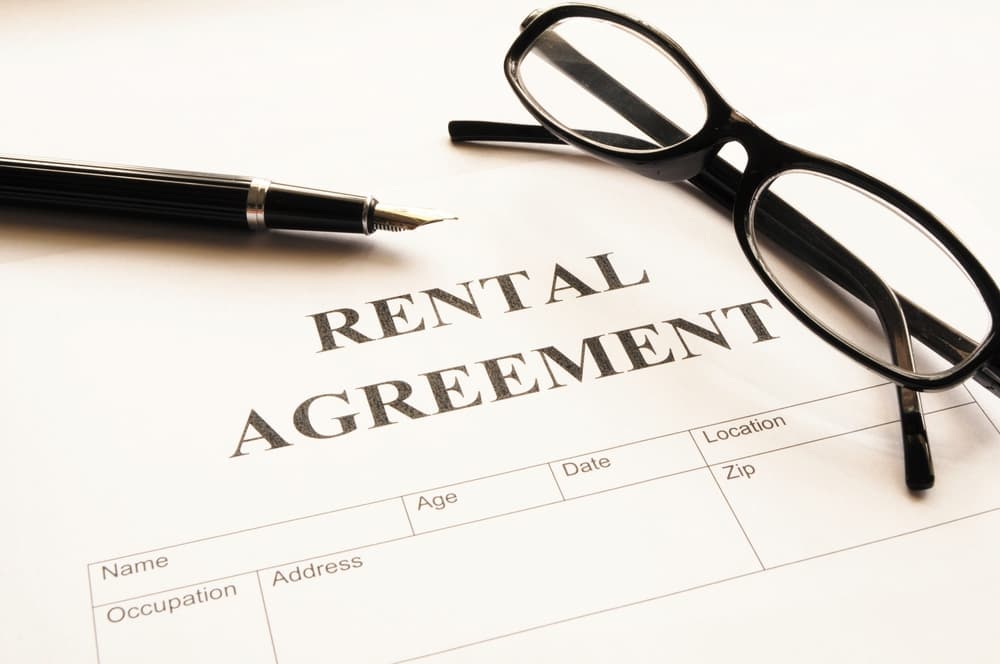Guide Contents
Guide Summary
- Digital marketplaces have placed all manner of equipment at buyers’ fingertips—making buying heavy equipment and commercial trucks online an increasingly efficient and secure experience.
- Though many security protections exist, there will always be scammers employing deceitful methods to exploit buyers.
- Officials with the Better Business Bureau are reporting a dramatic increase in heavy equipment sales scams across multiple states.
- To combat these, let’s look at some of the most popular schemes scammers use, what red flags can help reveal said schemes, and what you can do as a heavy equipment buyer to protect yourself.
Fake listings often entice buyers with rock-bottom prices that are literally too good to be true. They do this by stealing images of existing listings and posting them on their own pages with slashed prices.
One quick initial way to check the validity of listings is by analyzing the listed images. Google Reverse Image Search can help you identify potential image duplications across the web.
To perform a Google Reverse Image search, take the following steps.
- Download one of the images from the listing.
- Navigate to https://images.google.com/
- Select the camera icon on the search bar that says “Search by image” as you hover over it.
- Upload the image you just downloaded.
- From the results, see if you can spot the exact image you uploaded to confirm its origin.
Cross-Listing vs. Fake Inventory
Some sellers cross-list—the practice of listing the same items on multiple marketplaces, just as you may post the same personal item for sale on eBay or Facebook Marketplace at the same time to increase exposure.
However, if you performed a reverse image search on the item and found different buying sources, such as different companies in different places selling the same item, this should raise your suspicions about the seller’s right to sell the item in the picture or the validity of the sale.
Some other red flags of fake inventory scams include,
- A price that seems too good to be true.
- A seller with limited reviews, poor reviews, or very limited digital infrastructure (website, third-party verification, short time in business, etc.)
- Grainy or otherwise low-quality equipment images.
We will get into many more specific red flags in this piece.

Even with a legitimate-looking listing, could you still wind up falling for an advanced fee scam?
An appropriately allocated down payment you need to cover is one thing. A scammer trying to take your money and disappear under the guise of “advanced fees” is quite another.
Understanding some advanced fee scam red flags will empower you to make safer transactional decisions.
Some advanced fee scam red flags include, but are not limited to:
- Requests for upfront payments or fees
- Vague claims about what upfront fees are needed for—including shipping costs, paperwork processing, and the like
- The seller pressuring you to pay the specific fee immediately
- The seller pressuring you to pay the fee in an unconventional way
- Your questions not being answered in detail

Now, considering you protect your finances, how do you protect your identity?
As equally important as protecting your money, protecting your personal information is crucial in your buying process.
You can begin by employing stringent verification processes.
Some are simple—including ensuring website URLs are secure (https://) and that correspondence is through verified, trusted sellers.
There are several other ways to safeguard your identity in the buying process.
- There is no reason to share sensitive information—such as social security numbers, financial details, or any passwords—with online marketplace sellers.
- Do immense research on the seller by reading reviews and complaints against them by others.
- Process payments through a secure third party you have chosen or vetted.
- Be very suspicious anytime anyone asks you to give them information from your email inbox or via text message. This could indicate an attempt to change the passwords of your systems and gain access to sensitive information.

But what happens when the equipment itself is not what it seems?
How Can I Combat Counterfeit Equipment Scams?
Not to be confused with a fake listing scam, in which a scammer has no inventory at all, counterfeit equipment scams attempt to provide you with equipment that is not what you agreed to buy.
To confirm you’re receiving what you agreed to buy, identifying counterfeit equipment needs a discerning eye and meticulous verification.
Here are a few red flags to look out for to ensure you’re not falling for a counterfeit equipment scam:
- The seller says they need to swap out the specific piece of equipment for another just before purchase.
- The seller hesitates to allow pre-purchase equipment inspections.
- Model numbers, serial numbers, or other identifying features do not coincide with the original listed details and manufacturer records.
- The seller fails to provide you with serial numbers or VINs of the equipment they are selling.
The sellers should always allow a thorough inspection of the equipment before the sale is conducted—either by yourself or a third party of your choosing. If you’re having the item shipped, make sure to take pictures to guarantee you’re receiving the item you inspected.

The physical equipment checks out. Now, how do you keep your payments safe?
How Can I Safeguard Against Escrow Scams?
What is an escrow scam?
Escrow scams can be some of the trickiest scams as they often seem quite convincing. They usually proceed as follows.
- A buyer finds a great price on a piece of heavy equipment they need.
- The seller says that an escrow agent will handle the transaction to protect each party.
- The buyer pays the escrow agent, who is supposed to securely pay the seller.
- The seller keeps the buyers hanging with fraudulent receipts or maybe phony shipping documents.
- When the buyer reaches out for updates, they usually discover that both the seller and the escrow agent have disappeared with the buyer’s money.
There are a handful of red flags to spot and ways you can avoid being the victim of an escrow scam.
- Thoroughly research any escrow agent or company you may need to use including company records and reviews.
- Be wary of sellers who pressure you to use a specific escrow agent.
- Never pay for heavy equipment in full before you have received it and it has been inspected.

What happens when the scam isn’t in the purchase, but in the shipping?
How Can I Avoid Shipping Scams?
Much like an escrow scam, a shipping scam involving a heavy equipment seller attempts to shift the focus to a shipping entity—which usually does not exist.
- The buyer finds a piece of equipment they wish to purchase.
- Final arrangements are made through a shipping company of the seller’s choice.
- After long delays, the seller claims that the shipping company claimed that the equipment has been shipped, but not yet arrived, or some other excuse for the delay.
- Before long, the buyer reaches out and realizes that both the seller and the likely fictitious shipping company have made off with their money.
Prevent falling victim to shipping scams by doing the following.
- Verify the seller’s previous shipping records to ensure items were successfully received by buyers.
- Seek out authentic reviews about the seller as well as the shipping company.
- Ask to be supplied with your own tracking numbers or other means of independently monitoring the state of shipped items.
- Ensure that all charges are agreed upon and documented prior to payment.

How do you ensure that a rental doesn’t turn into a financial pitfall?
How Do I Protect Myself from Rental Scams?
Much like escrow and shipping scams, rental scams combine the attributes of the other scams with a counterfeit equipment scam. This is made easier because many buyers do not associate ownership of rented equipment with the transaction—making for an easier “bait-and-switch” scenario that usually occurs in the following way:
- The buyer finds rental equipment for an appealing price on an online marketplace.
- A deal is struck with the provider of the equipment.
- Either the equipment never arrives or the equipment that does arrive is not what was agreed upon.
- The seller makes excuses for the inconsistencies while refusing to make proper adjustments or simply disappears with the money.
To avoid becoming the victim of an equipment rental scam, there are some red flags you can identify and steps to take.
- Be wary of equipment rental prices that seem too good to be true, vague equipment details, or low-quality photos of the equipment.
- Research the rental company and any other third-party identity involved. Be on the lookout for signs of a long and positive track record with other customers via independent review sources.
- Thoroughly document all transactional expectations, equipment specifics, shipping arrangements, and the like.

Buyers, Remain Vigilant
At My Little Salesman, we go to great lengths to help ensure the validity of each company or individual who applies to sell their inventory on our platform. But to be completely honest, no marketplace platform can guarantee total protection from nefarious actors online.
This is why each buyer must remain vigilant against potential scams from bad actors on any marketplace platform.
The following are just a few ways to help reduce your chances of being a victim of a scam while attempting to buy or rent equipment, vehicles, and parts, on any platform.
How to Avoid Getting Scammed: Your Tip List
Do your own research on the seller.
Before you buy anything from a seller, make sure to research their reputation online through sources not affiliated with the seller. Read reviews from other buyers and see if there are any complaints against the seller.
Be wary of deals that seem too good to be true.
Remain highly suspicious of inventory whose prices are significantly lower than the average market value.
Never pay for heavy equipment, parts, or commercial vehicles in full before you have received and inspected them.
Use a secure payment method, such as a credit card or PayPal.
Such third-party sources provide some distance and security if you are scammed.
Be careful about what information you share with the seller.
Do not share your Social Security number, credit card number, or other sensitive information with the seller. Credit checks should ideally be performed through a verified third party.
The seller is asking for an upfront payment.
Legitimate sellers will typically not ask for upfront payments, especially for expensive items like heavy equipment, parts, or commercial vehicles.
The seller is located in another country.
Though international business is acceptable, it can be difficult to track down and recover your money if you are scammed by a seller in another country.
The seller is asking you to pay in an unconventional way.
If the seller is requesting you to make any payments to them in an unusual way—such as with gift cards or any untraceable transfers—this should be red flag.
The seller has poor reviews.
If the seller has an abundance of negative reviews, they may be a scammer or at least not worth dealing with.
The seller is pressuring you to buy the equipment immediately.
Scammers often try to create a sense of urgency in order to pressure buyers into making hasty, regrettable decisions.
If the seller is asking you to send any overpaid funds back to them.
If a seller makes claims about a rebate, discount, or overpayment mistake that should be remedied in the form of funds being transferred back to them, this could indicate that the seller is not legitimate.
The seller is not willing to answer your questions in detail or is giving vague answers.
Scammers may be reluctant to answer your questions because they don't have the answers or because they're trying to hide something.
The seller is using stock photos or low-quality photos of the equipment.
This could be a sign that the equipment doesn't actually exist or is in poor condition.
Report All Suspicious Activity Immediately
If you have questions or concerns about a particular seller or bizarre behavior while using the My Little Salesman, please contact us immediately.
Explore, with assurance, an extensive array of verified heavy equipment and commercial truck listings with My Little Salesman. Your safe purchasing journey is our priority.